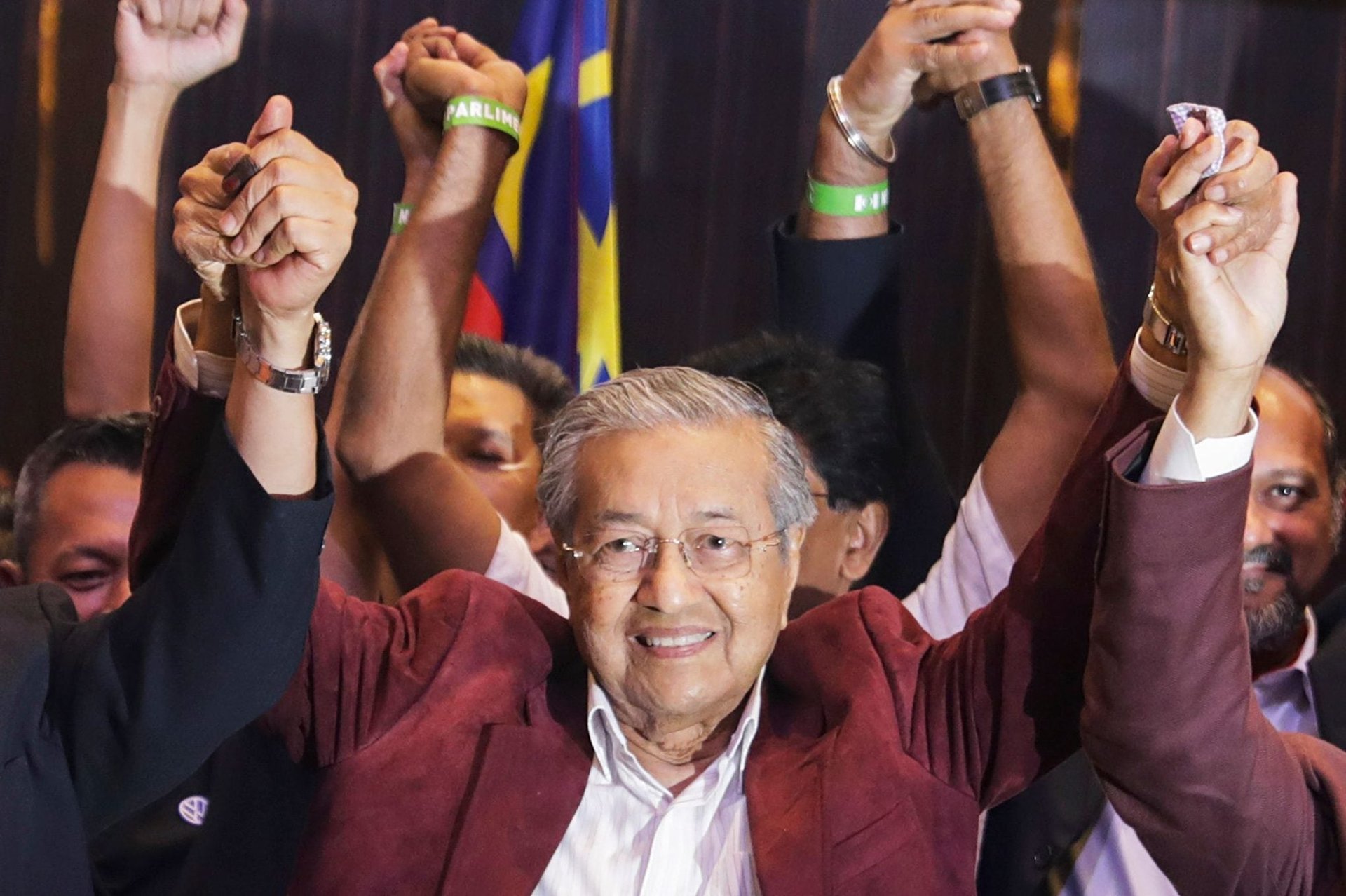Southeast Asian governments almost never lose elections. Malaysia’s just did
Malaysia’s ruling party suffered a shock defeat in yesterday’s (May 9) election, with prime minister Najib Razak ceding power to nonagerarian former leader Mahathir Mohamad after almost a decade in power.


Malaysia’s ruling party suffered a shock defeat in yesterday’s (May 9) election, with prime minister Najib Razak ceding power to nonagerarian former leader Mahathir Mohamad after almost a decade in power.
The Barisan Nasional (BN) coalition, led by Najib’s United Malays National Organisation (UMNO) party, lost its majority after the opposition coalition Pakatan Harapan won a simple majority of 113 seats of 222. BN has ruled Malaysia since its independence in 1957. The biggest upset was BN’s loss of the southern state of Johor, which it’s always held. Pakatan won seven out of 13 states, and Najib defended his seat in Pahang state, which he has held since 1976.
Najib’s defeat was never in any way a foregone conclusion, despite his government being dogged by allegations of large-scale corruption tied to the 1MDB state investment fund and livelihood issues, such as rising costs and a new consumption tax. Decades of populist policies favoring the majority Malay population, such as cash handouts, and appeals to the country’s conservative Islamic voters have helped cement UMNO’s power in Malaysia. The opposition’s job was made all the harder by BN’s attempts to swing the election in its favor by redrawing electoral maps and passing a new fake-news law that some said was a move to stifle criticism of the government.
But the election result in Malaysia is also a seismic event for the broader Southeast Asian region, where democracy remains fledgling in most countries. As Aaron Connelly, a researcher on the region at Sydney-based think tank Lowy Institute, notes, it’s almost unheard of for voters to overturn governments in Southeast Asia. The biggest electoral upset up until now might be the 2015 defeat of Myanmar’s military junta by Aung San Suu Kyi’s National League for Democracy.
But as a renewed wave of strongman rule grips neighboring countries such as Cambodia, which has dissolved its opposition and all but snuffed out its free press, and Thailand, where a junta refuses to relinquish power, it’s worth remembering that 92-year-old Mahathir is himself no progressive reformer. As Najib’s mentor, he ruled Malaysia for decades with a tight grip, even throwing in jail his opponent Anwar Ibrahim on multiple sodomy charges. Mahathir has this time vowed to topple Najib’s “corrupt” rule and promised that he would cede power to Anwar if he won, while Anwar’s wife, Wan Azizah, will become deputy prime minister.
A shared goal of bringing down Najib brought these two long-time foes together—if Mahathir keeps to his word, Malaysia could break the unsettling pattern of rising authoritarianism in Southeast Asia.